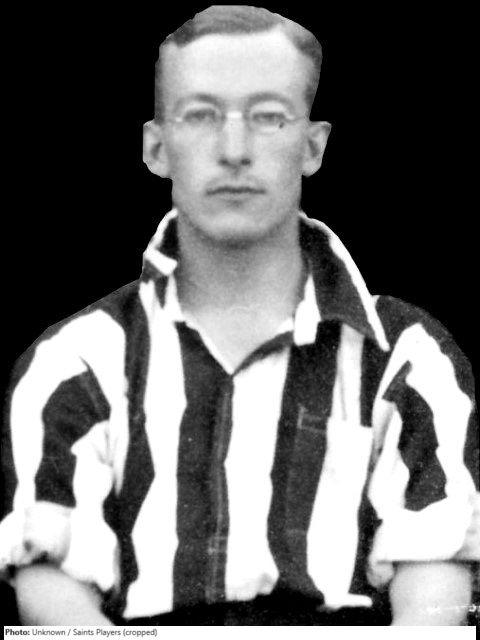
| Roles | Non-starter |
|---|---|
| Sex | Male |
| Full name | Leonard Sydney•Dawe |
| Used name | Leonard•Dawe |
| Born | 3 November 1889 in Brentford, England (GBR) |
| Died | 12 January 1963 (aged 73 years 2 months 9 days) in Acton, England (GBR) |
| Affiliations | Southampton FC, Southampton (GBR) |
| NOC |  Great Britain Great Britain |
A centre-forward or inside-forward, Leonard Dawe was one of the 15 reserves for the 1912 Olympics but accepted the FA’s invitation to join the squad when Joe Bailey pulled out injured, although he never played in Stockholm. Educated at Portsmouth Grammar School and then Emmanuel College, Cambridge, he won his football Blue in 1912 and scored the second goal in a 3-1 win. He won one England amateur cap, against Ireland, four months after the Stockholm Olympics. He also played for Dulwich Hamlet, Ilford and Casuals and had a spell with Southampton between March 1912 and January 1913 when he scored three goals in 11 Southern League appearances. He used to play in spectacles which was sometimes a handicap to him, and before an FA Cup tie for Southampton against Bury in January 1913 he had to withdraw from the starting line up due to heavy rain. Dawe served in the War when he was commissioned and served with the Forest School Training Corps before joining the Hampshire Regiment and serving in the Mesopotamia campaign and eventually reached the rank of Major before resigning his commission after nearly 12 years. Dawe never became a professional footballer due to him following his profession as a schoolteacher and he taught at several schools in the London area before being appointed headmaster at the Strand School in Brixton, and during his time there the school suffered a major tragedy when five students lost their lives in a snowstorm tragedy whilst on a trip to the Black Forest in Germany in 1936. The school was also to be at the centre of attention again several years later.
Dawe became a crossword compiler for the Daily Telegraph and during the war Dawe’s crosswords attracted the attention of MI5 when an officer, while attempting one of his puzzles came across the word “Utah” which was the answer to a clue. Meaning little at the time, it transpired that Dawe’s crossword had earlier contained the words “Juno”, “Gold” and “Sword” as either a clue or answer and these were all code names for the D-Day landing but when the word “Omaha” appeared as the answer to one clue MI5 were now suspicious because this was going to be the first beach attacked during the D-Day invasion. And after the world “Overlord” and other names to be used in the attack appeared, Dawe was questioned by the security service and after a massive interrogation they eventually ruled it was just coincidence. However, the Strand school, where Dawe was still teaching, had been evacuated to Surrey during the war and it was revealed many years later that Dawe had the habit of asking students to fill in words on his crossword grids and he would then compile the clues to accompany them. The ‘coincidental’ D-Day words came from one such student, Ronald French who, it transpired, spent a lot of time at a nearby American camp and he picked up these words used by soldiers. So, it was more than a coincidence. Dawe continued compiling crosswords up to the time of his death in 1963.
| Games | Discipline (Sport) / Event | NOC / Team | Pos | Medal | As | |
|---|---|---|---|---|---|---|
| 1912 Summer Olympics | Football (Football) |  GBR GBR |
Leonard Dawe | |||
| Football, Men (Olympic) | Great Britain |